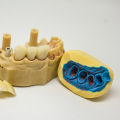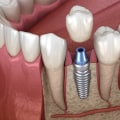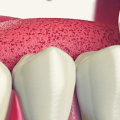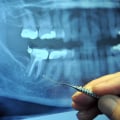The pain associated with a tooth extraction can be quite uncomfortable, but it is usually short-lived. Once the anesthesia wears off, the pain may worsen, but it should subside within 1 to 3 days. Headaches, pain around the temples, neck or jaw, and sore throat may be the result of swelling and should go away within 1 to 3 days. In the case of a simple tooth extraction, the pain can last between one and three days.
Particularly sensitive patients may feel persistent pain or tenderness in the area for a longer time, possibly up to a week. Dry alveolitis is a condition in which there is inflammation of the mandible (or alveolar bone) after tooth extraction. This condition is often accompanied by bad breath and a bad taste in the mouth. Alveolitis pain is usually experienced between two and four days after tooth extraction.
It is difficult to specify what type of pain after tooth extraction is considered “normal”. However, most people find that the pain when extracting a tooth passes after three days. Care after a tooth extraction is important to help you recover better and faster, so that you can return to the activities you enjoy. The best way to reduce pain after tooth extraction is to follow your doctor's aftercare instructions to the letter.
Tooth extractions near you are common, especially when treatment options, such as endodontics or dental fillings, can't resolve the dental problem. The dentist will open the gums to access the teeth. Extraction isn't a painful process, but you may feel pain and discomfort after the procedure. These symptoms should go away within 2 to 5 days, but it's essential to follow all post-extraction care instructions provided by your dentist.
In some cases, root tip extraction is necessary when a simple extraction leaves behind the end of the tooth roots. When tooth extractions involve impacted teeth or wisdom teeth, there is a greater risk of pain and infection. Tooth retainments often aren't discovered until they begin to cause cavities or damage surrounding teeth. Visit Family Dental Care to learn more about tooth extraction procedures and what to expect.
The prevention of the development of dry alveolitis may be influenced by the methods used by the dentist or the surgeon who performs the tooth extraction.






